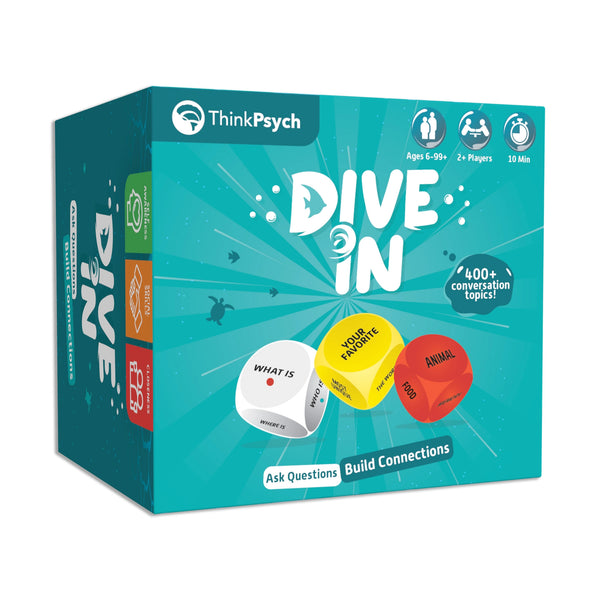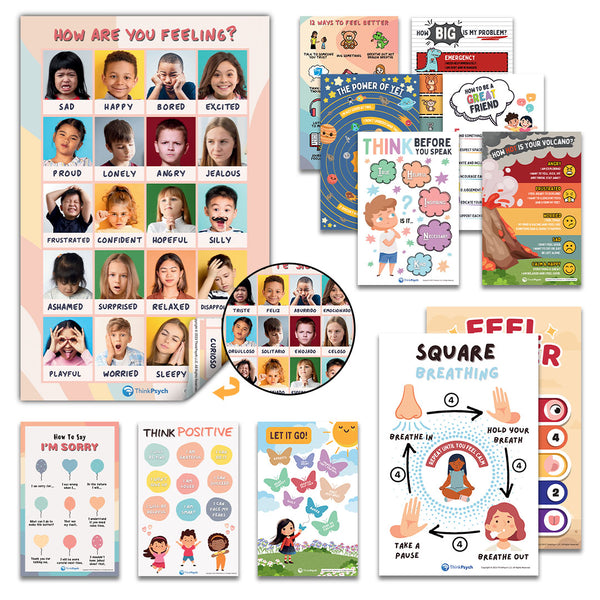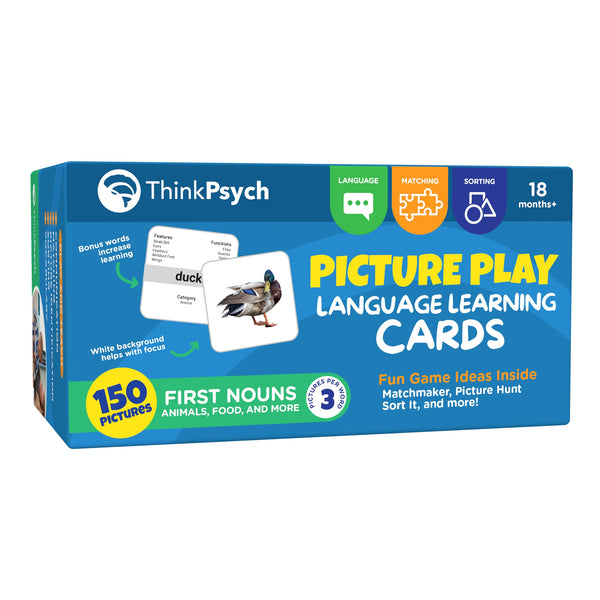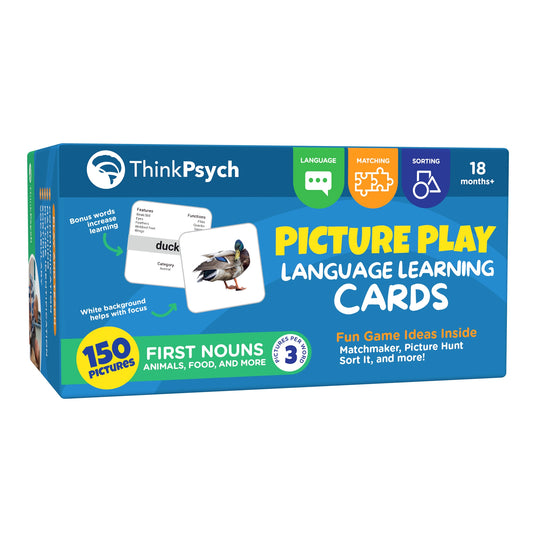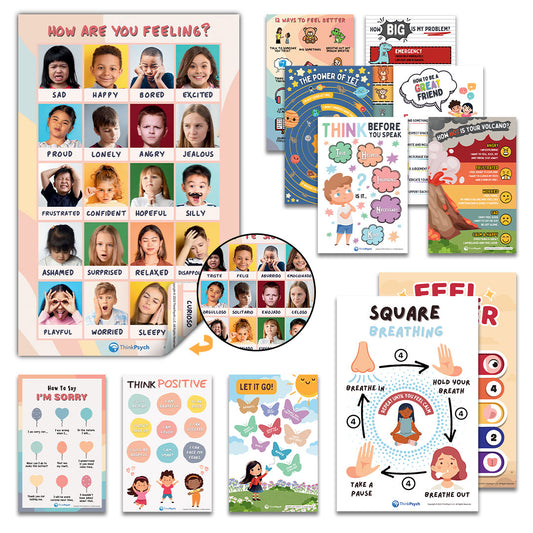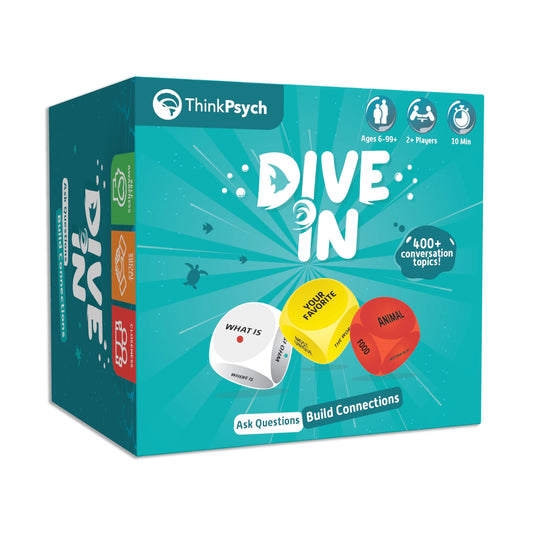
Strategies to Help Your Teen Find Their Voice
Share
Ah, adolescence. A time of awkwardness, angst, romance, rebellion and everything in-between. Raising teenagers can be tough, yet these years are essential to developing emotionally intelligent adults.
It’s especially important to empower your teen to find their voice. This involves both their ability to express themselves and embrace their unique identity. Ultimately, this can help your teen build strong confidence, communication skills and independence.
Let’s go over key strategies to support your teen as they discover their power and learn to advocate for themselves.
Why Your Teen’s Voice Matters
During this transitional phase, teens are exploring their identity and purpose. They may struggle with self-love, bullying, peer pressure, body image, mental health and more.
Your teen’s voice is their strongest offense towards accepting themselves and pursuing their dreams. It’s also their greatest defense against negative behaviors and pressures. Some reasons why it’s crucial to help your teen find their voice include:
- Self-esteem
- A sense of belonging
- The ability to speak up and say “no” (i.e. healthy assertion)
- A full range of expression
- Barriers against self-harming thoughts/behaviors
Tips to Help Your Teen Find Their Voice
Developing your teen’s voice may seem abstract in nature, but there are practical steps you can take. Here are our most valuable tips for actively supporting your teen’s confidence and individuality.
1. Foster Avenues of Self-Expression
Encourage your teen to find creative avenues to express themselves, such as art, photography, music, dance, theater, creative writing, journaling, etc. These activities can help your teen find their voice and inner calm. They can also be cathartic and get rid of negative feelings. They’re also great for giving your teen a sense of purpose by learning something new and/or collaborating with peers.
2. Encourage a Growth Mindset
Teens can sometimes beat themselves up when they fail a test or don’t do well in an extracurricular activity. Support your teen by inculcating a growth mindset – the idea that skills aren’t fixed, but can be continually improved. Having a growth mindset can help your teen embrace the challenge and use hard work, persistence and feedback to boost their abilities. Doing so enables your teen to overcome their fear of failure and take clear action when they want to do better.
3. Promote a Sense of Unique Self
During these years, your teen will form their own identity. This process involves understanding themselves honestly, without the pressure of what their peers or society says they should be like. Support your teen to accept their unique self, whoever that may be.
4. Model Positive Talk and Communication
Teens often parrot the way their parents or role models talk. Watch the way you’re communicating around your teen. Talking down to yourself, comparing yourself to others or engaging in negative gossip may teach your teen that this is ok. Instead, model positive talk that boosts confidence.
5. Teach Self-Advocacy Phrases
Peer pressure is a major aspect of adolescence. Help your teen advocate for themselves with some key phrases that they can whip out in difficult moments. Some of the best “no” phrases include:
Shop ThinkPsych Products
- “Thanks, but no thanks.”
- “I’m just not into that.”
- “Not this time.”
- “I’ll pass.”
- “That’s not happening.”
- “The answer’s no.”
You might also mention other strategies such as changing the subject, making a joke or giving an excuse.
6. Create Open Conversations
Your teen may not always know what to do or say. That’s why it’s so important to give them a forum to air their concerns, seek advice and ask questions. Create a welcoming atmosphere for conversation at your home, so that they feel comfortable approaching you.
7. Harness Emotional Intelligence
Emotions are raging during adolescence. Help your teen understand that staying calm and managing their emotions always gives them the upper hand in a conversation or argument. Showing anger, resentment, irritation or other negative feelings only makes matters worse. Their message will be more powerful when delivered with composure.
8. Understand Social Media Pressure
Social media is a whole new world for parents to navigate today. Keep in mind that peer pressure and bullying on social networks is extremely common. What’s more, teens can get easily addicted to their self-image online, leading to anxiety or negative thoughts. Whenever possible, try to monitor what’s going on online and support your teen in finding enriching activities that go beyond digital spaces.
9. Identify Exemplary Role Models
Encourage your teen to find role models they admire, whether at school, the community or beyond. Having these people in their sights will help them stay true to their goals and values. For example, suggest that they create an inspiration board with several figures, quotes and images as a mood-booster.
10. Foster Independence
If you’re solving all your teen’s problems for them, they won’t learn to speak up. Make sure you’re fostering independence in your teen by supporting them to act and make decisions on their own. Of course, it’s great for you to be a sounding board to help them work out how to handle a situation. In addition, encourage them to have new experiences and get out of their comfort zone.
11. Celebrate Efforts and Progress
Focusing too much on your teen’s achievements can make them feel pressured, instead of supported. Be sure to celebrate key milestones along the way, especially when they’ve made great progress. Pivoting towards their efforts can help them see the importance of hard work and growth.
12. Facilitate Access to Tools, Mentors and Resources
Finally, you may not have all the answers when it comes to building your teen’s confidence. For this reason, it’s important to hook your teen up with tools, mentors and resources. Try to tailor these according to your teen’s interests and personality, so they can create strong connections.
Help Your Teen Find Their Voice With ThinkPsych
Your teen’s voice is a key part of their identity and confidence. That’s why it’s so critical to teach your teen to speak up and accept their unique self. Leverage our strategies above to support your teen as they develop self-expression and self-advocacy. Help them practice by playing the hilarious talent show game, Talent Jam.
Building self-esteem doesn’t happen overnight. As you empower your teen’s voice, don’t forget about other aspects of emotional intelligence. Get even more tips and activities for developing EQ skills on our ThinkPsych blog!
References:
- Safe Search Kids, How to Build Self-Esteem in Teens for Good Mental Health, https://www.safesearchkids.com
- Young Minds, A Guide for Parents and Carers: Self-Esteem, https://www.youngminds.org.uk
- Euka Future Learning, How to Help Your Child Find Their Voice, https://euka.edu.au
- Girls Leadership, How Teens Can Find Their Power and Assert Their Voice, https://girlsleadership.org
- Girls That Create, Help Your Daughter Find Her Voice, https://www.girlsthatcreate.com
- FreePik, Female Artist Painting Indoors, https://www.freepik.com




